A closer look at the 102-strong FA Council that delivered a crushing blow to non-league clubs hoping to overturn ‘null and void’ decision
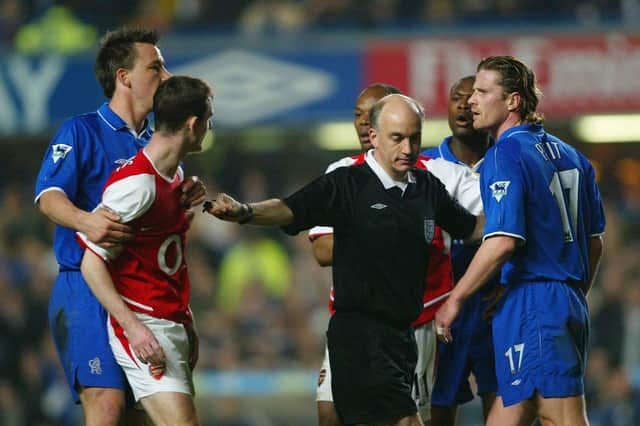

Yesterday evening, the FA delivered a crushing (but in many ways an inevitable and unsurprising) blow to the 150-plus non-league clubs desperately hoping for a Liverpool FC-style U-turn.
But whereas the reigning European champions caved in under a welter of criticism following news they were to seek government help to pay some of their staff, the governing body - in the words of former Prime Minister Margaret Thatcher - were not for turning.
Advertisement
Hide AdAdvertisement
Hide AdInstead, the FA’s Council backed the decision to declare all non-league football from steps 3-7 null and void for 2019/20.
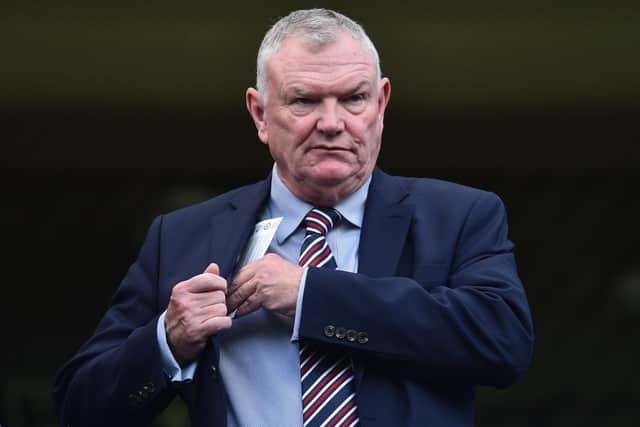

A 102-strong panel of footballing figures including Premier League chairmen, heads of county FAs and well-respected non-league managers collectively voted on whether to end the dreams of those seeking promotion or desperately hoping to avoid relegation.
It was a simple vote - whether to ratify the controversial decision made by the FA committee and league representatives over a fortnight earlier, or seek a different solution.
Moneyfields chairman Pete Seiden had told The News earlier in the week that, though he was signing the protest letter, he didn’t think it would make a blind bit of difference - ‘because it’s the FA.’
Within a matter of days, he was proved right.
Advertisement
Hide AdAdvertisement
Hide Ad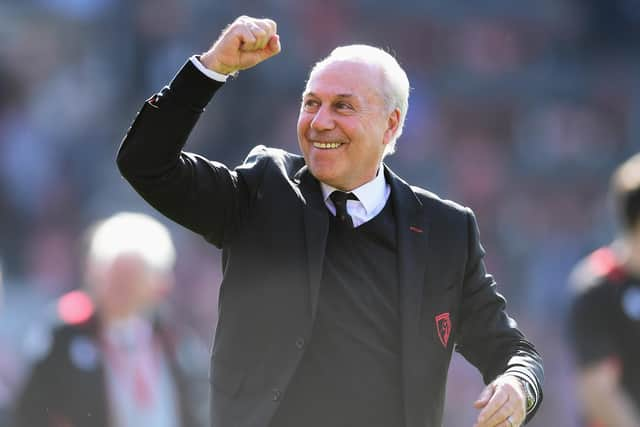

Hampshire Premier League leaders Infinity had also signed the letter, as had Alresford and US Portsmouth - top of the Wessex Premier and Division 1 tables respectively.
USP’s fellow promotion hopefuls Hythe & Dibden had also added their name.
‘This ratification was an endorsement that the correct decision was taken across those leagues subject to the decision,’ an FA statement coldly stated.
So, who are this overwhelmingly male group, this 102-strong FA Council?
Advertisement
Hide AdAdvertisement
Hide Ad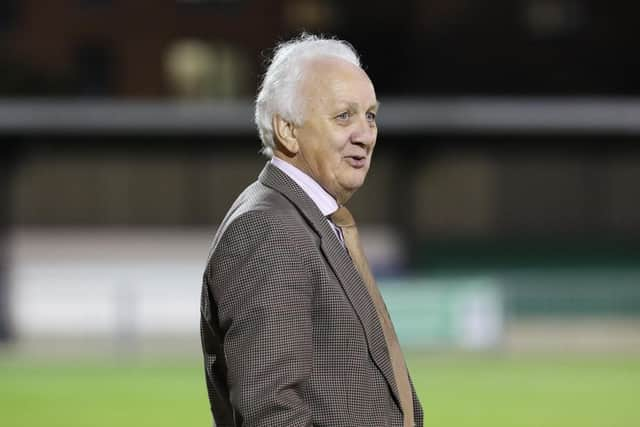

Well, they include six Premier League representatives, including AFC Bournemouth chairman Jeff Mostyn and Brighton chief executive Paul Barber.
Obviously I have no idea which way that pair voted - it would be nice of the FA to tell us. We do know the vote was ‘overwhelmingly in favour of ratifying the decisions’ but actual figures would help.
But if any of the PL representatives DID vote to null and void steps 3-7, how quick would they be to do the same to their league?
The EFL also have six votes, one of them belonging to Fleetwood Town CEO Steve Curwood.
Advertisement
Hide AdAdvertisement
Hide Ad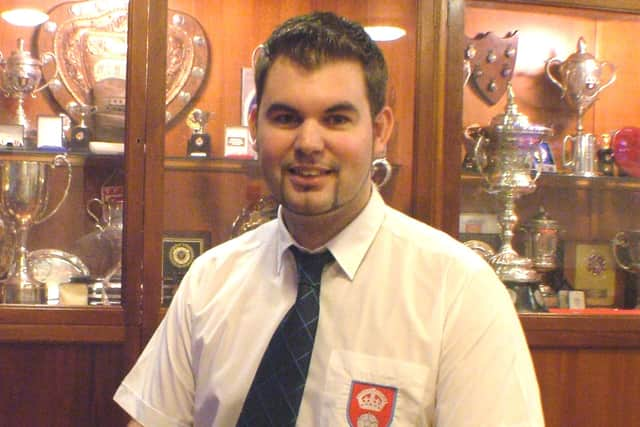

All 43 county FA organisations have a vote, with Hampshire’s belonging to chief executive Neil Cassar.
There are 10 divisional representatives, including two with strong coast connections - long-serving Bognor Regis boss Jack Pearce and Poole Town chairman Chris Reeves.
There are eight affiliated organisations with a single vote - including the PFA (CEO Gordon Taylor) and the Southern League, who include Gosport Borough and Moneyfields among their clubs. The SL vote was cast by league vice-chairman Anthony Hughes.
Ten of the votes went to what is listed on the FA website as ‘other football associations’.
Advertisement
Hide AdAdvertisement
Hide AdThey include The University of Oxford FA, The University of Cambridge FA, The Army FA, the Royal Navy FA and The Royal Air Force FA.
Two others are the The English Schools’ FA and the The Independent Schools’ FA, whose vote was cast by former Premier League referee David Elleray.
Also represented on the Council are: Supporters’ Representatives (x 2 votes),
Disability Football Representatives (x 2), Inclusion Representative (x1),
Advertisement
Hide AdAdvertisement
Hide AdBritish Universities (x1), BAME (Black, Asian, Minor Ethnic) football communities (x 2) and Futsal (x1).
The FA’s head of the National League System, Laurence Jones, explained why the governing body had decided not to follow the RFU by working out league tables on a points per game basis and rewarding success (promoted clubs) and punishing failure (relegating clubs).
Jones - the former head of the Hampshire FA - said: ‘I understand that this decision has inevitably caused some clubs, players and supporters to feel a sense of injustice and those feelings are entirely understandable.
‘This is not an easy time for anyone in football and we understand that there is no decision that will suit everyone.
Advertisement
Hide AdAdvertisement
Hide Ad‘We sympathise with those clubs that are currently occupying promotion spots – or those hopeful of securing promotion.
‘Some believe that it would be better to opt for a Points Per Match [PPM] model to conclude the remainder of the season, as opposed to expunging results.
‘Both options, and the potential implications of each, were considered at length by all involved.
‘The truth is that the consequence of clubs being promoted is that others will need to be relegated. The application of a PPM model would result in certain clubs that currently sit above the relegation zone falling into those places.
Advertisement
Hide AdAdvertisement
Hide Ad‘Equally, there would be certain clubs that currently sit in a play-off position that would not qualify as a result of the PPM Model.
‘The PPM model also doesn’t address the issue of how to deal with play-off matches and how to identify a winner who would consequently benefit from promotion.
‘In addition, most of the clubs facing relegation will be of the view that they stood a chance of avoiding it due to the number of games remaining in the season and they may consider it to be unfair for them to be denied the opportunity to secure safety through sporting merit.
‘It is impossible to find a solution that works for everybody, so the decision was based on two main factors.
Advertisement
Hide AdAdvertisement
Hide Ad‘Firstly, the potential financial impact on clubs during this uncertain period, and secondly, the fairest method on how to decide the sporting outcomes for the season, with the integrity of the leagues in mind.
‘Some have referenced the fact the PPM model has been used to determine promotion and relegation in the past, which is correct, but only in cases where clubs are compared across different leagues, with the season having been completed and all clubs having played their fixtures.’
The RFU also mentioned the word ‘integrity’ when explaining their decision to keep grassroots rugby competitive in 2019/20.
RFU President Peter Wheeler said: ‘We believe that the decisions made provide fair and balanced outcomes for the game and maintain the integrity of the competitions.
Advertisement
Hide AdAdvertisement
Hide Ad‘There is no single solution that will suit every club, but the approach taken is one that we believe best reflects the nature of league rugby in England.
‘With 80 per cent of the season complete for the community game, we believe our approach is fair and the right one for our leagues.
‘We have clubs that are clear league leaders and worthy of promotion, but also other clubs who have said they would benefit from relegation, to play more meaningful rugby.’
No doubt Wheeler’s words apply to non-league football as well, but there is a big difference between the games some clubs had left to play when the sporting world was brought to a shuddering halt by Covid-19.
Advertisement
Hide AdAdvertisement
Hide AdFor example, Havant RFC only had four games left - 16 per cent of their games - when their season stopped and they were subsequently declared champions of London 1 South. Petersfield had played 87 per cent of their games and were declared Hampshire Premier title winners.
In local football, the percentages are smaller. For example, Christchurch - fourth in the Wessex League Premier and in with a shout of the title - still had 31 per cent (12 games) left to play. Leaders Alresford had 21 per cent of their fixtures to play and third-placed AFC Portchester 27 per cent.
Ditto grassroots hockey. Though local leagues have yet to announce whether they are honouring promotions and relegations, the East of England organisation have already said they will.
Locally, most of the Hampshire Hockey League season had been completed by the time the sport was stopped. It is far easier to use the PPG system when only a handful of games - only one or two in some hockey divisions - remain.
Advertisement
Hide AdAdvertisement
Hide AdThe RFU also got around the promotion play-off issue easily enough. In 2018/19 the runners-up in London 1 South and North met in a play-off, with Brighton winning promotion by beating Colchester. This season the governing body promoted Westcombe Park (L1 South) because they had a better playing record than Colchester (L1 North).
Back in non-league football, and it seems the fall-out from the FA Council’s will run for a while yet.
South Shields - 12 points clear at the top of the Northern Premier League’s top flight (step 3) - were just one club to have signed the letter of protest. And chairman Geoff Thompson is not about to give up the fight yet. ‘Dialogue already started with numerous clubs regarding next steps,’ he tweeted. ‘Calls scheduled with lawyers tomorrow.’
Thompson admits that his next move will be based on what happens with the National League. At present, steps 1 and 2 of non-league football are suspended indefinitely, but the likes of Hawks boss Paul Doswell remain hopeful games could restart at some point in the summer.
Advertisement
Hide AdAdvertisement
Hide Ad‘We need to act with care not emotion and solely based on facts and legal opinion,’ Thompson added. ‘It will be interesting to see what happens at steps 1&2. If they apply different logic that will determine our next steps.’